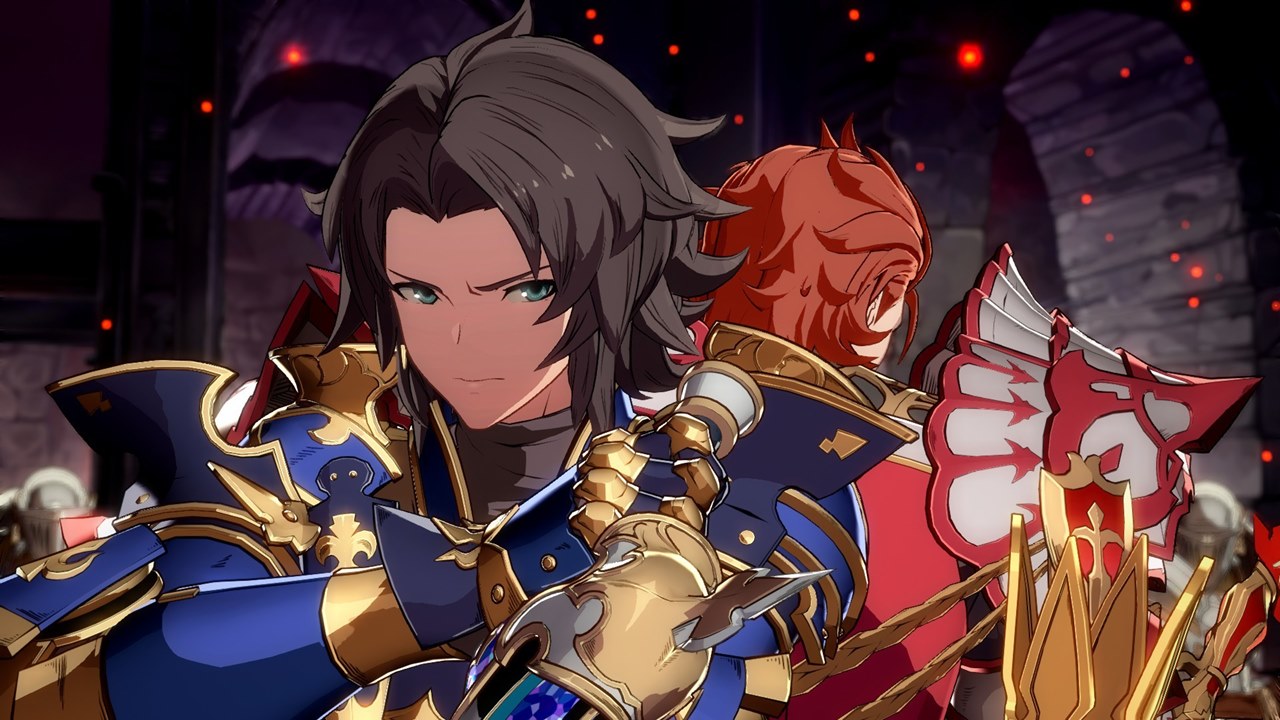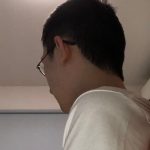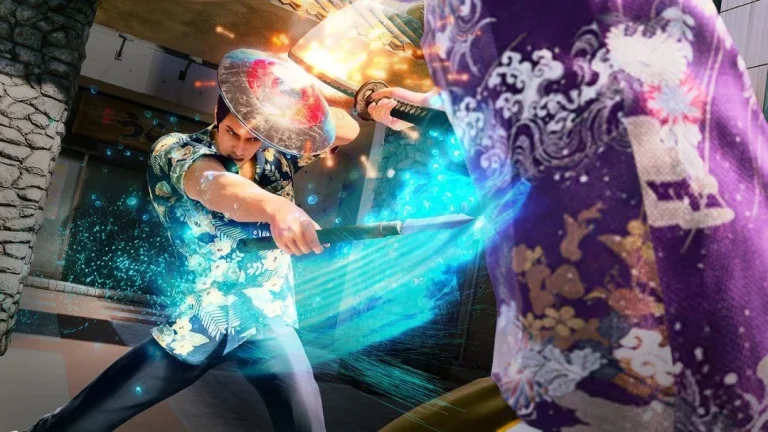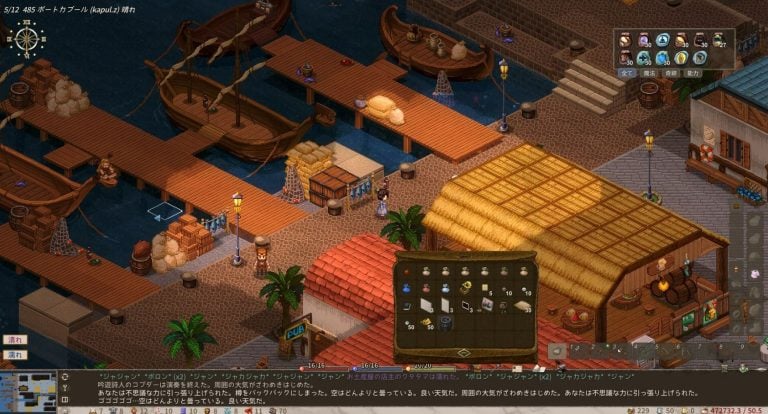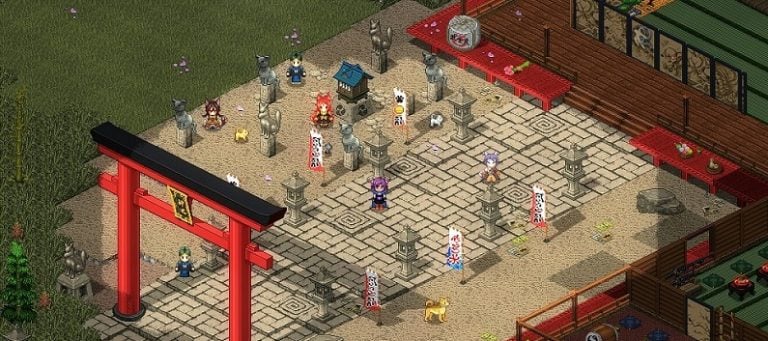The finals of the ARC WORLD TOUR 2023 (held from March 21 to 23 this year) featured Granblue Fantasy Versus: Rising (GBVSR hereafter), culminating in a fierce competition between eight top-level GBVSR players from around the world.
With the overall competitive gaming scene heating up, you may be wondering why these players chose GBVSR and how they go about practicing their skills. We had the opportunity to simultaneously interview a whopping seven of the eight players who participated in the GBVSR finals of the ARC WORLD TOUR 2023 and ask them all about the tournament and GBVSR. In this article, we present the full contents of this exclusive Japan-USA-Europe joint interview. We have divided it into two parts due to the sheer volume of interesting answers we received.
In the first installment, we asked the players about how they came to pick up GBVSR and why they chose their current mains. In this article, we take a look at how the players prepare for a match, how they deal with pressure, and other tips on being part of the professional scene.
Please note that that this interview was conducted in April, at the time of the patch 1.30. The game’s content may differ in some respects from the current patch 1.41.
Participants:
• Takodot (Japan)
2 years of fighting game experience. Doesn’t like vegetables.
Mains Nier and Belial.
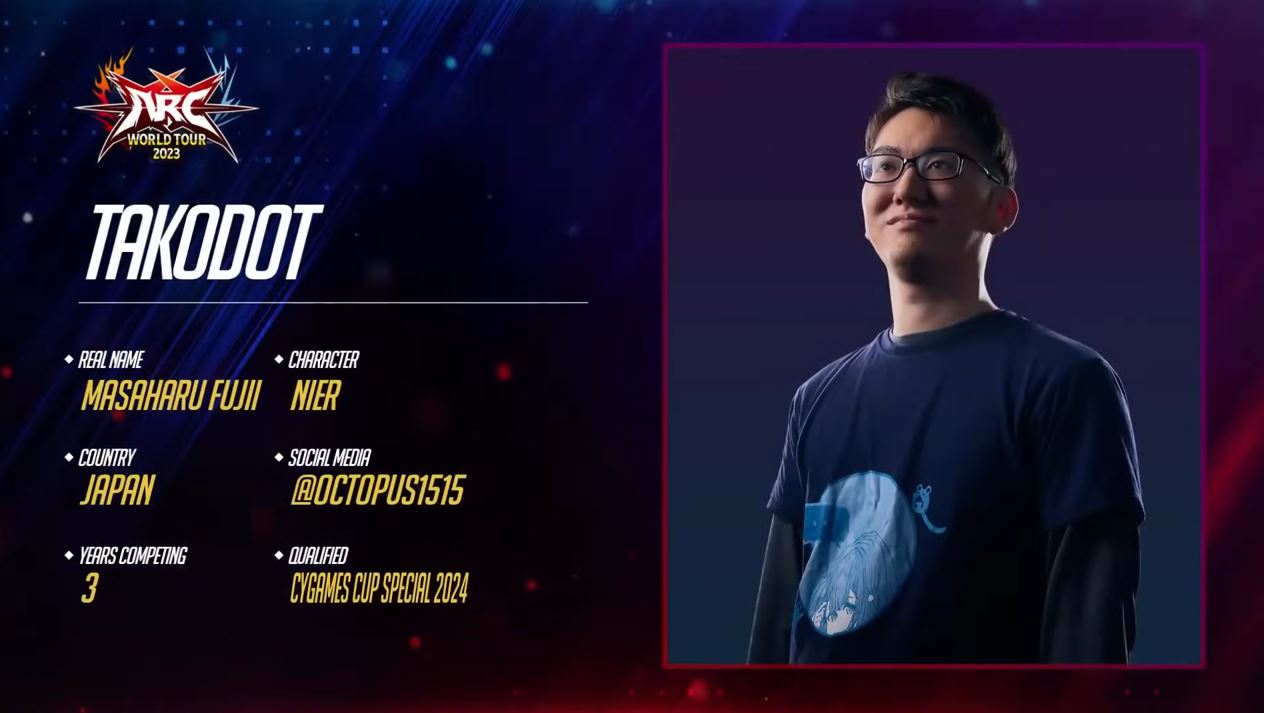
• Fukunaga (Japan)
He started playing Granblue Fantasy Versus as his main game as soon as it was released. Likes the game mechanics of GBVSR.
Mains Lancelot.
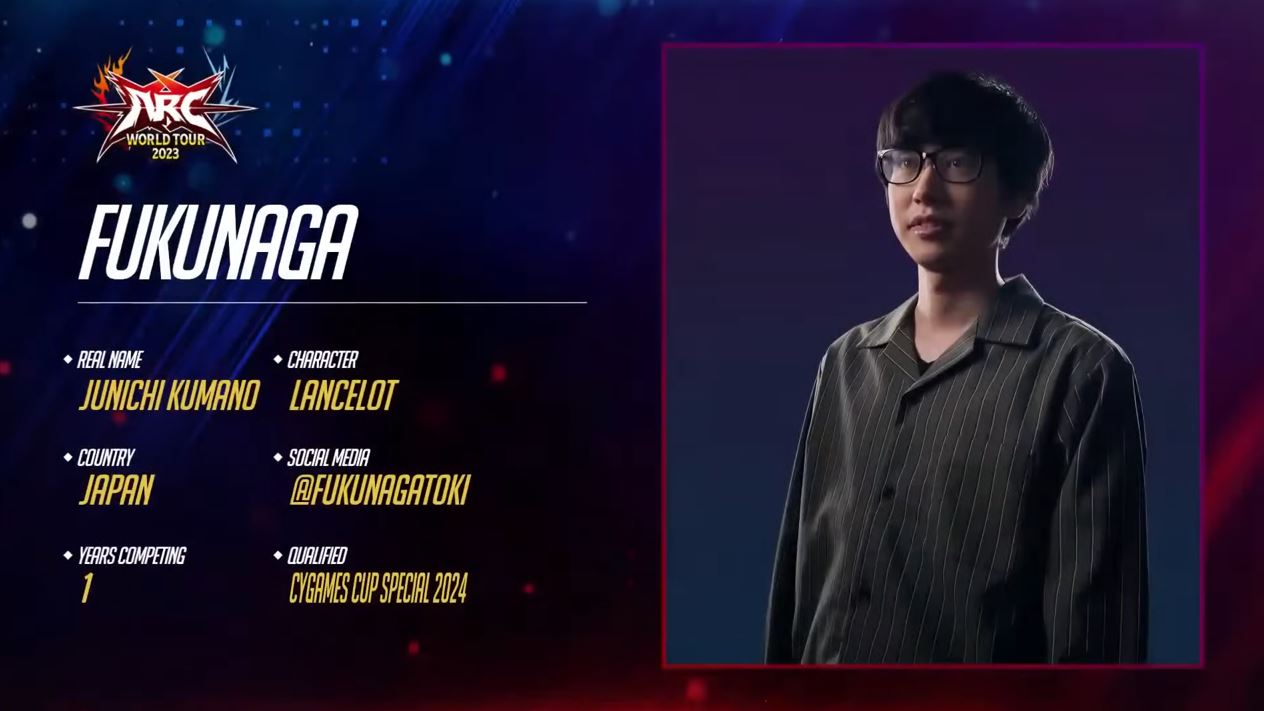
• Xerom (USA)
Has been playing fighting games for a long time. He also likes RPGs and is a fan of the original Granblue Fantasy.
Mains Charlotta.
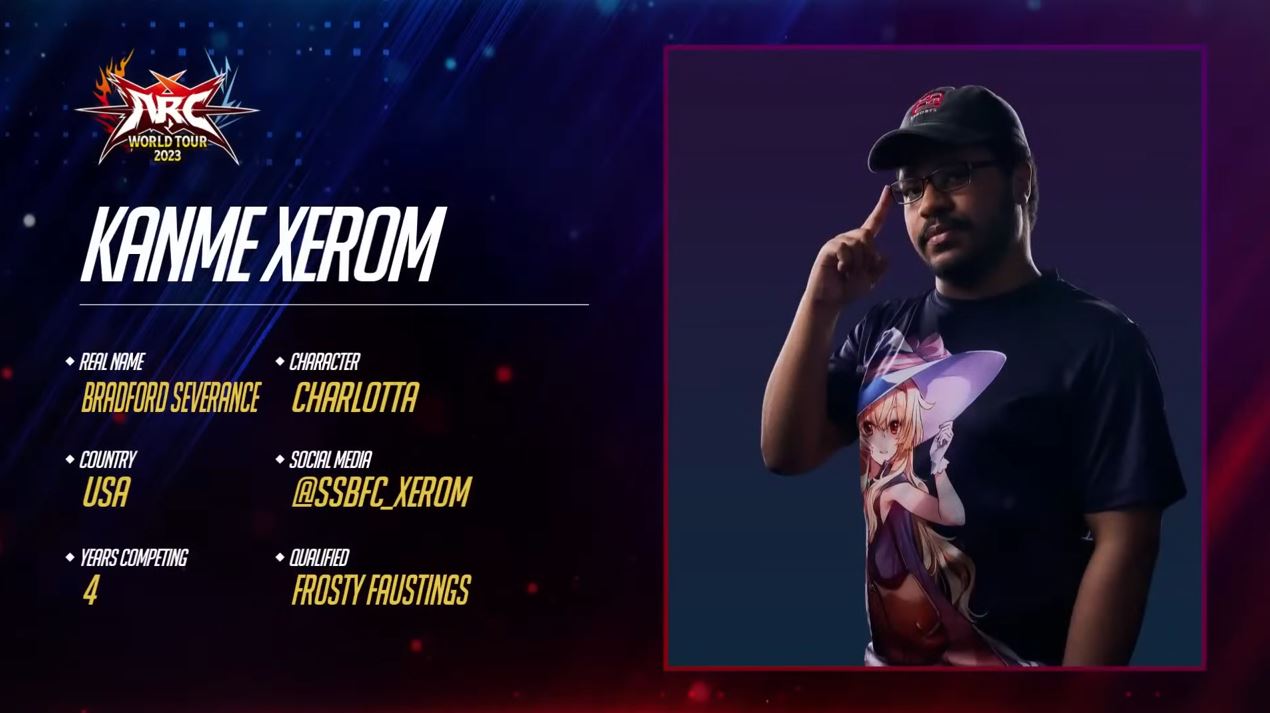
• Fitizen (Germany)
Has been playing fighting games since 2013. Has played many titles, and is currently playing GBVSR.
Mains Siegfried.
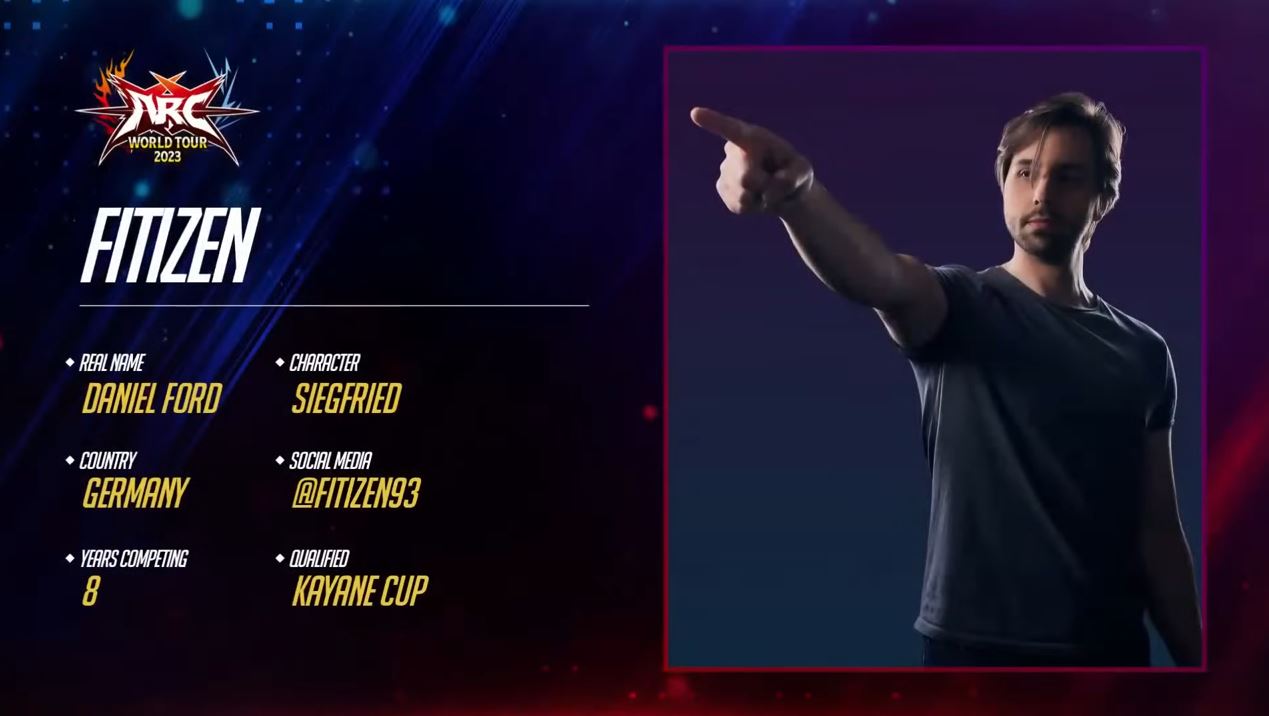
• Zippy (USA)
Has been playing fighting games for about 4 years. Just graduated from senior high.
Mains Nier.
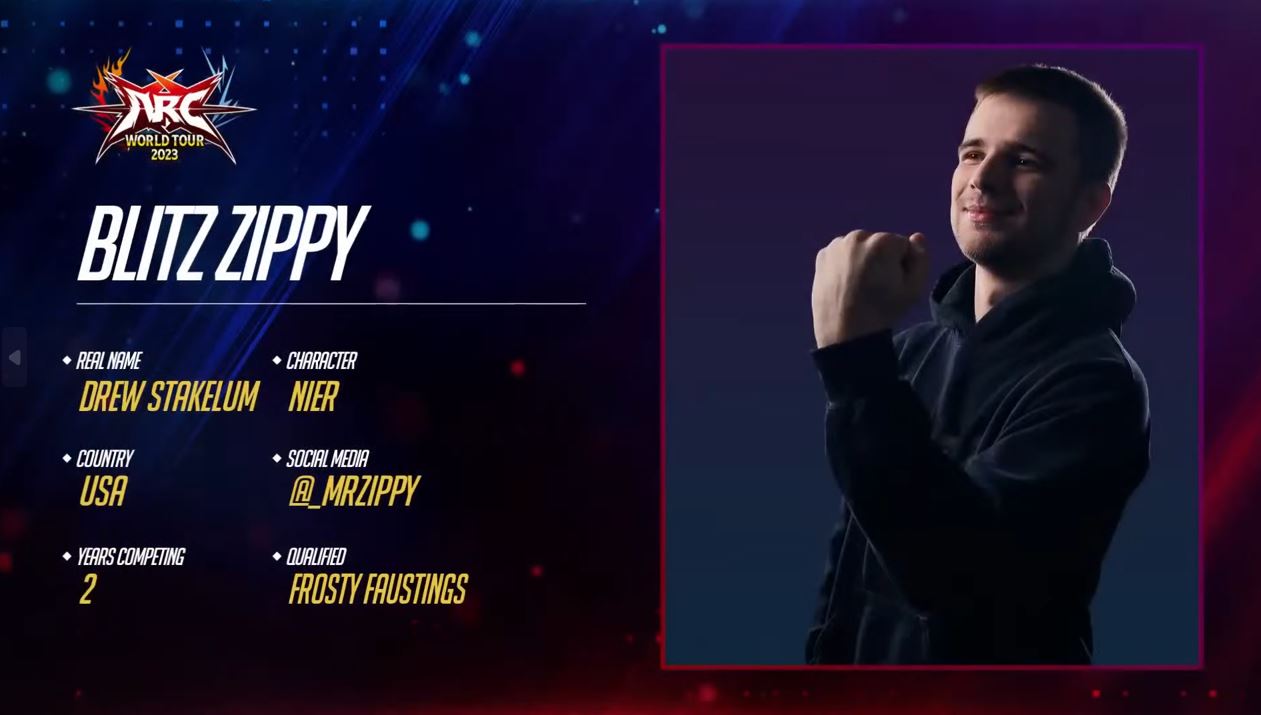
• Sonic-san (France)
Has been playing fighting games since 2009 and often visits local tournaments.
Mains Siegfried and Belial.
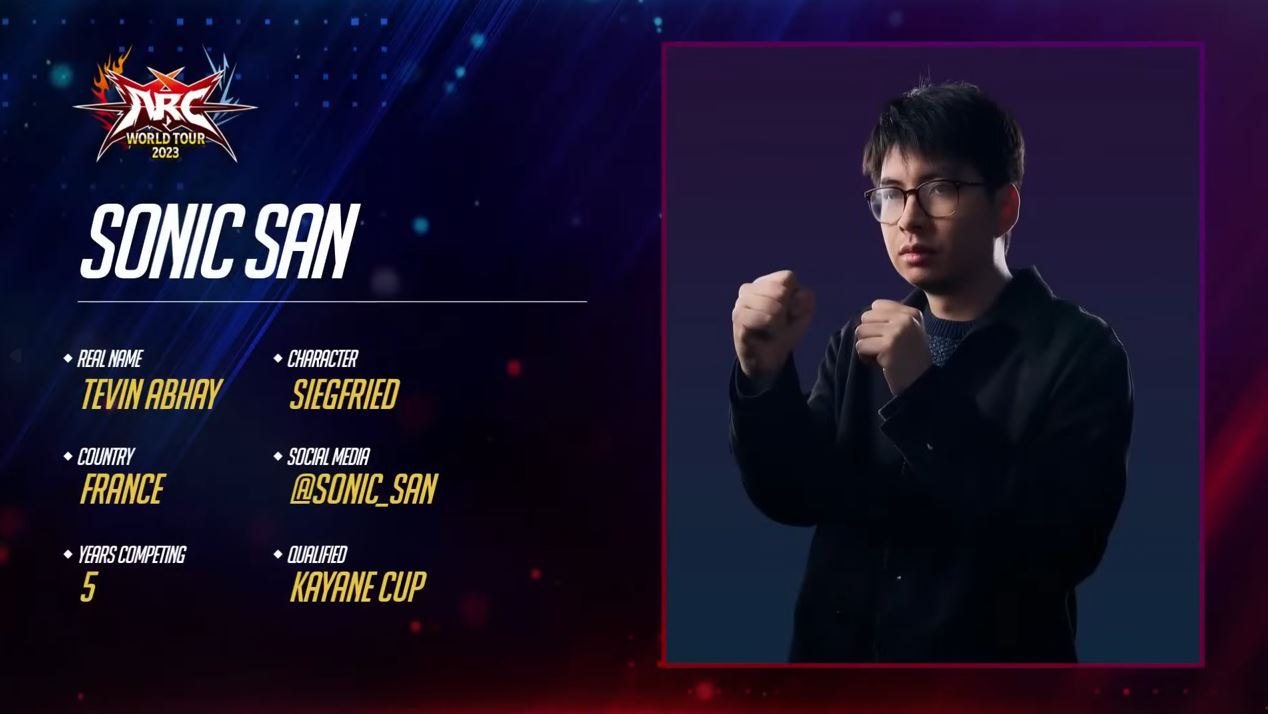
• Kojicoco (USA)
Speaks Japanese and has interpreted on a few occasions for this interview. His favorite food is sweets.
Mains Nier and Zooey.
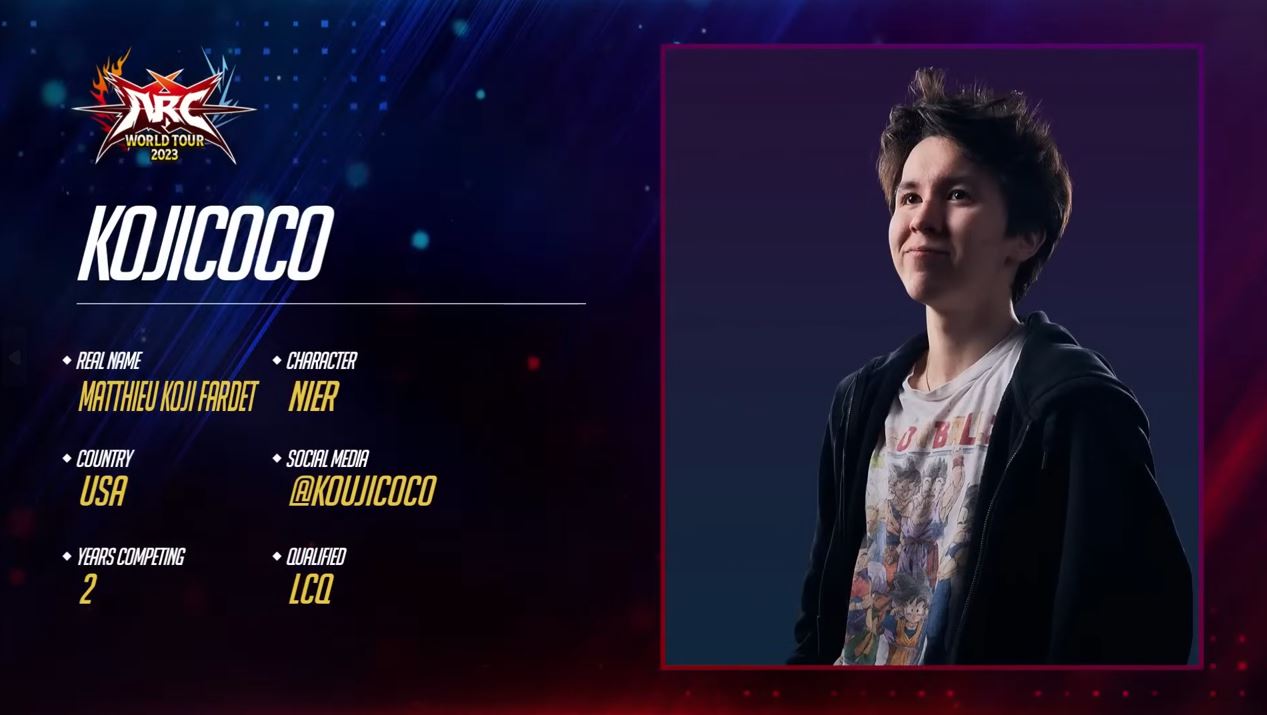
──Who was the player you paid the most attention to during the finals?
Takodot:
I had my eyes on Xerom, my opponent in the first round, who is a Charlotta player. He was the only Charlotta player in the finals, and there aren’t many players in Japan who main Charlotta. There were people in Japan who had played against Xerom previously, and they said he was better than any Japanese Charlotta player, so I was very wary of him. I probably spent about a month working on countermeasures against Xerom, by analyzing online replays of his games and whatnot.
Fukunaga:
I basically watched the replays of all participants in the finals (with the exception of Gobo and Kojicoco, whose participation wasn’t confirmed at the time) and studied their quirks and playstyles. I paid particular attention to the replays of Sonic-san, Takodot, and Xerom from my block. I was especially wary of Takodot, as I had lost once to him in the Cygames Cup and had a feeling that our playstyles don’t mesh well together. That’s why, I made sure to work on my moves in anticipation of playing against Takodot even in my regular Nier games.
Xerom:
I think all the players were impressive during the finals, but if I had to name someone, Fukunaga really stood out to me. He’s very calm, collected and very deadly in how he plays Lancelot. He makes sure that every interaction is optimal and takes heavy advantage of Lancelot’s U-Wogenstrom to really force his opponents into making mistakes. As far as Lancelot players go, I think he is a lot stronger than the North American Lancelot players. It was very refreshing to see the character being played at such a high level compared to the local scene. Also, Takodot was the one player that I prepared for the most since he was my opponent for the first round. I trained with local Nier players that I usually play with, like Zippy, Koko and Elsa to try to get prepared for my round one match. Although I ended up losing, I think I put up a good fight. It was a very enjoyable match.
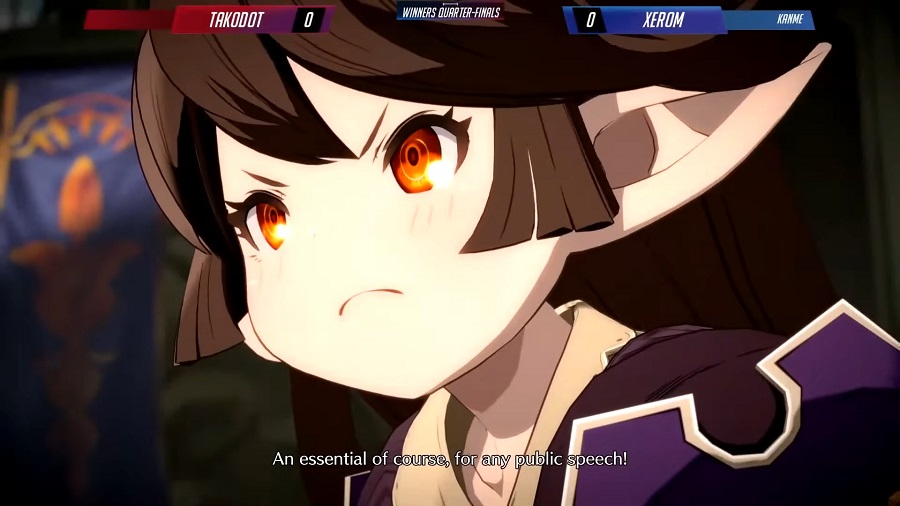
Fitizen:
I prepared the most for the player I knew I would actually face, which is Zippy. In addition, I prepared a lot for Nier in general since the sign-ups for the Last Chance Qualifier had both Kinari and Kojicoco, who are Nier players. Plus, of course, there is Takodot, who I think for most people was the favorite to win the tournament, given his performance at Cygames Cup and Japan being the strongest region. All of this meant that I couldn’t avoid studying Nier, so I did that pretty heavily. As for the actual tournament itself, I think Gobou was very entertaining – clearly the most fun player to watch. Fukunaga was on my radar as well, but seeing him play in person was different from watching footage. I had watched his replays, but the replays alone did not convey the feeling you get when you actually play against him. His sense of timing makes him very strong. Kojicoco winning the LCQ stood out to me as well. Xerom completely ran me over, but I wouldn’t say that surprised me because even though there’s a lot of strong players in Europe, I knew I wasn’t super consistent in the game yet. I always knew something like that could happen to me. In short, the three players that stood out to me the most were Koji, Fukunaga and Gobou.
Zippy:
I was mostly preparing for Siegfried when the whole tournament started. I had been telling everyone that I didn’t want to fight Siegfried, and during the raffle I prayed, “No Fitizen please,” but ended up getting Fitizen. I felt doomed for like a week, I was really sad. Then I went, “Okay, I need to practice,” so I hit up a local Siegfried player in New Jersey called Notorious and played him for 4 hours a day. Our conclusion was that maybe I could cheese a game or few with Nier, but I’m probably not winning the BO5. Thus, I switched to preparing for the losers’ bracket, which looked way more doable. To summarize, I mainly focused on preparing against Fitizen and Tacodot.
Sonic-san:
If I had to choose one player, it would be Fukunaga, mostly because he plays Lancelot. At the time, the top tier characters were considered to be Siegfried, Nier and Seox, but it was pretty obvious to me that Lancelot is very strong and also belonged up there. However, since he is harder to play than the other three, he doesn’t get to shine as much. It was really pleasing to see Fukunaga play Lancelot so well, because we now have someone actually representing the character. Obviously, it was hard to train against him since there aren’t a lot of good Lancelot players in Europe, or even in America. That’s why, when I actually faced him, it was very hard, but I tried my best. I also labbed against Nier a lot to prepare for my loser’s bracket.
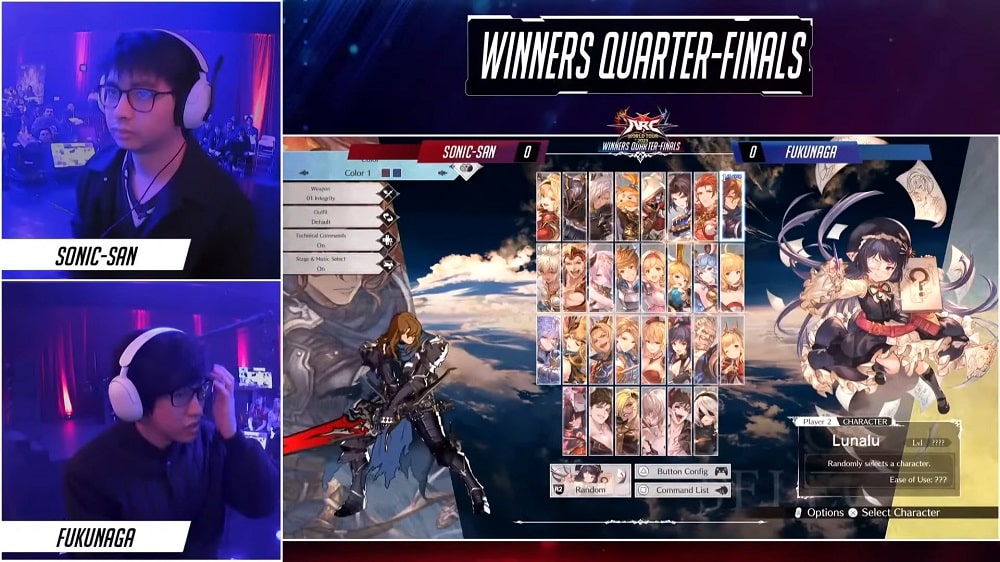
──How did you overcome the pressure of the finals? Do you have any coping methods?
Takodot:
There have been many times in past tournaments when I felt that I got too worked up to execute my moves. I try not to get too worked up, but in reality, it’s very hard not to, so in moments like that, I suppress my desire to prepare and do something fun other than fighting games, such as playing different games or hanging out with friends. I feel like this refreshes my mind and allows me to go into the tournament with a good mindset. This time too, I went to a hot spring with friends two days before the tournament so that I would not get too preoccupied with the game or tournament.
Fukunaga:
Distracting thoughts, like thinking about prize money, tend to interfere with my play, so I try not to think about stuff like that. (laughs)
Xerom:
I often listen to music to deal with my tournament nerves as it helps me calm down. I think having something like music to kind of tune your focus helps you play better. I also think having fun is really important for remaining calm during a big event, and I was having a lot of fun during this tournament, so I found it easy to remain calm and perform my best.
Zippy:
Like Xerom said, music helps a lot. I listen to music on my phone, and when I’m nervous I talk a lot. I’m a talker, so I’ll be talking to Coco, trying not to be nervous. I can feel the pressure let up when I’m having fun chatting with them. Then, once you’re in the set, you don’t really feel much pressure, so it’s just the moment leading up to the set where I feel nervous.
Kojicoco:
The main thing I was nervous about was LCQ. I think I played a lot worse in LCQ because of the nerves, but once I made it to the finals, the relief of winning LCQ helped me stay calm. I was obviously a bit worried about underperforming, but still, it was my first time on a stage that big, so I wasn’t too conscious of how big the event was. I did not realize how big Arc World Tour was when I was up there and playing. It might be hard for me to play on that big of a stage again because I tend to overthink a lot. But at the same time, I think winning LCQ helped me stay calm throughout.
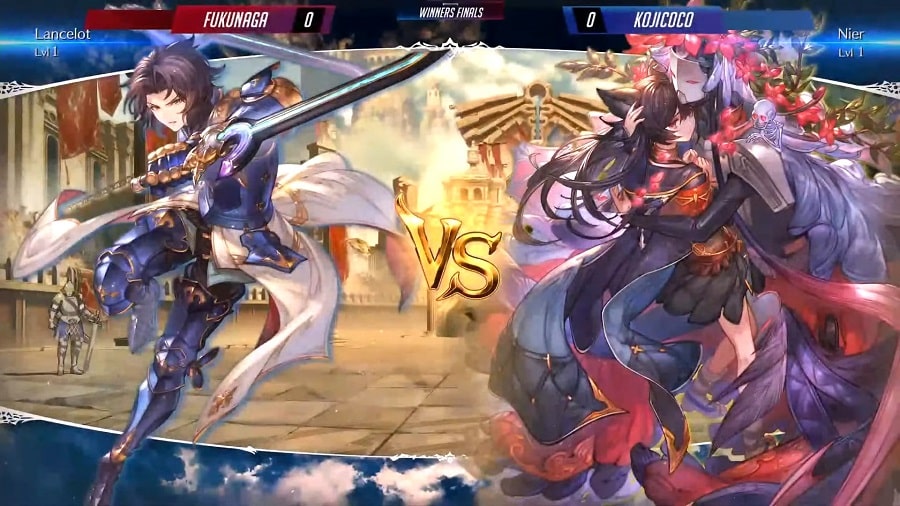
Fitizen:
I actually meditate a lot. When I first started competing, I wasn’t meditating yet, and it’s not necessary in order to perform well, but now that I do it, it does help. I would say I’m less nervous than I used to be. I feel my nerves the most when I’m in the tournament match and I’m behind. Even though I didn’t have any comebacks in the actual tournament this time, I got close vs. Koji and I feel that wouldn’t have been possible without everything I’ve learned so far. When I start thinking about things that aren’t the game – like what happens if I lose, about traveling back home and about who I would disappoint, that can be very distracting, and it’s obviously not good for my performance. The way I manage to get back into the game in the moment is by telling myself to simply be happy that I’m able to compete against the best players in the world like this. Usually, that turns off the overthinking for me right away. I think it’s a very personal thing, but it has proven to be the most helpful so far.
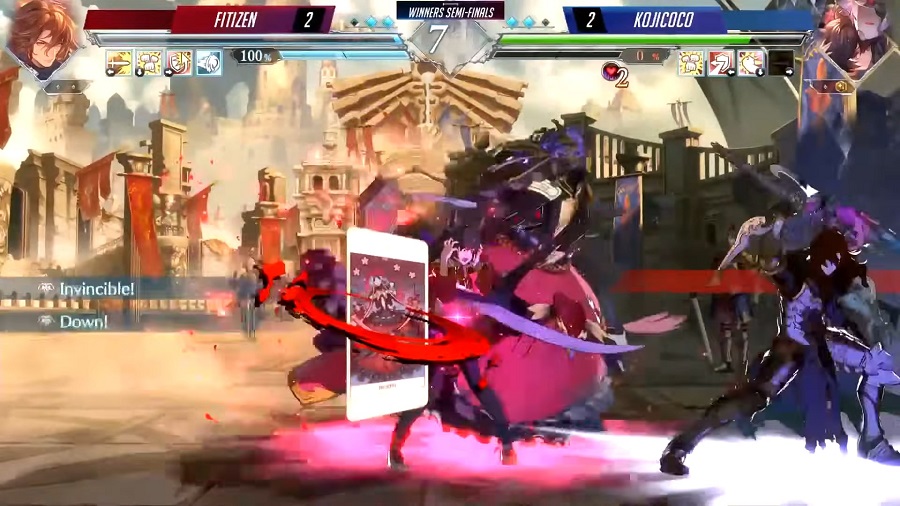
──Besides the mental aspect, are there any other things you have particularly paid attention to in training for this tournament?
Takodot:
Since my opponent was decided early on, I contacted Japanese players who were using the characters I was most likely to play against, and I played against them for 2-3 hours, 3-4 times a week. I practiced by asking them for feedback and about how to counter their characters.
Fukunaga:
I think I practiced in almost the same way as Takodot. I also did a lot of repetitive practice so that my body would move on its own even when I was nervous, and so that sequences and combos would get ingrained into my body. After all, there are times when I am so nervous that I can’t think straight, so I practiced to be able to do my usual moves as if they were reflexes even when I’m in a pinch.
Fitizen:
I think this is the question that is most important to me. Since Europe as a region didn’t have any top players that played Nier, I was very concerned about not getting enough practice against her. Here is where I would like to give a shout-out to my friend and top player Socky. I think you’re going to see more of him in these coming years as well, but he purposely picked up Nier so I could practice against her. Over one month, we played many hours together, and I credit him the most for preparing me for the matchup and beating Zippy.
Kojicoco:
I think preparing for the World Tour was something else for me, because I also had to go through LCQ. There’s a Houston player called Jan and he offered to play some sets with me to help me deal with Ladiva and it helped me a lot. Of course, I’d grind with other top players in NA including Zippy, so that hopefully when I compete, I would be able to perform at the same level. I also wanted to practice against Nier when I found out Kinari and Nitro were in my pool. Oddly enough, I think the scariest matchup for me was the Nier mirror, but we didn’t see any of that during the Arc World Tour, and that’s kind of funny.
Sonic-san:
I would like to twist the question a little bit because this is something I learned after the tournament, but it’s to always warm up before a match. I think I didn’t really perform well in this tournament, and I feel like that is because I couldn’t play much before actually going into the match. In Kayane Cup, there’s a bracket, so you actually play in the morning before the big top 8 in the afternoon. But at Arc World Tour, I wasn’t feeling good about my game because I did not get to play a lot before the match. Next time, when I get into this situation, I think I will be sure to ask players on the other side of the bracket to do some warmup matches.
──What do you think is the most important thing in order to win a tournament?
Takodot:
The amount of practice is important, of course, but I also think how you feel is crucial. No matter how much you practice, you will be competing in an unfamiliar environment, and it will be difficult to play as you normally would. I think it is especially important in competitions to keep your mind in check by practicing hard and, as I mentioned earlier, consciously taking breaks and refreshing yourself.
Fukunaga:
I’ve recently noticed something after participating in various tournaments for other games as well, and that is – “if you seek stability, you will lose stability.” I like characters that are aggressive, and I tend to be an aggressive player, but when the time comes to play in a tournament, I often find, myself losing even against opponents I am usually able to beat because I become too passive and response-based. That’s why I have been trying to maintain my usual playstyle while remembering to be aggressive, so that I can demonstrate my skills for what they are.
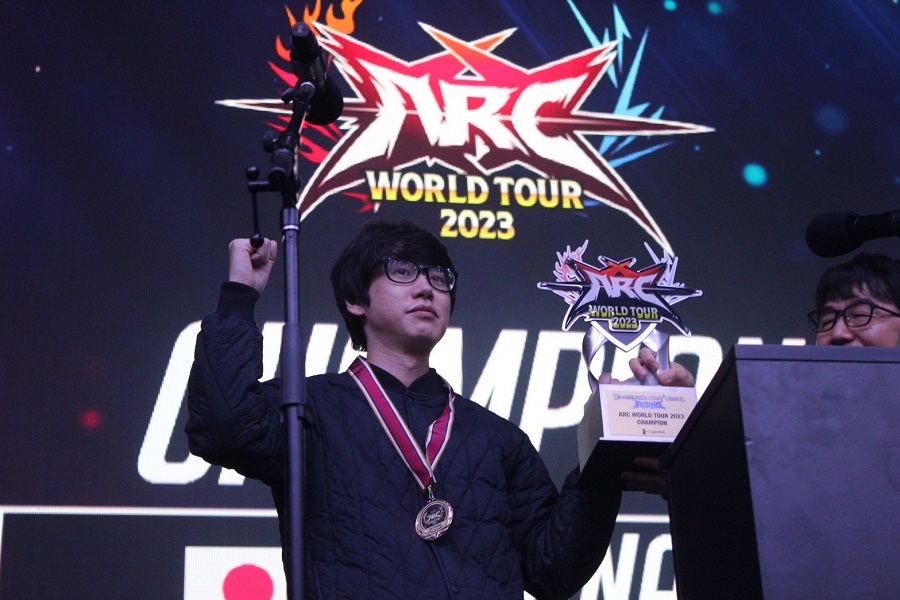
Xerom:
I think that the most important factor in winning tournaments is being able to adapt to your opponent and to remain calm under pressure. This ensures that you don’t make any critical mistakes, and it keeps you very flexible so that you’re able to adjust to your opponent’s game plan mid match. You generally want to avoid being too nervous as well, because if you’re making too many mistakes with your input, that can really cost you a game, if not the entire tournament. Those are the things that I consider to be critical for actually winning – the flexibility and the ability to adapt on the fly.
──Do you ever rewatch your tournament matches? What are the main points you focus on when rewatching?
Takodot:
I rewatch my tournament matches quite a bit. This time too, I watched my matches right after the tournament was over. Basically, I first watched the matches I won to feel good. After all, seeing people praising your plays in the comment section makes you happy. I can’t watch the matches I lost right after the tournament because of the frustration, but recently I’ve been able to calm down and watch them too. I reflect on my mistakes, such as moments when I played too predictably, and make the most of what I learned next time.
Fukunaga:
I also don’t watch the games I lost too often, but I did rewatch the game in which I lost to Takodot at the Cygames Cup a lot of times, because there was a good chance that I would play against him at the ARC WORLD TOUR. After all, maneuvers at tournaments are a little different from usual replays, so I studied how Takodot plays at tournaments and which sequences he uses. But, yeah, usually I only watch the games I won (laughs).
Xerom:
Much like Takodot and Fukunaga, I really don’t like to study any matches that I’ve lost because it’s kind of hard to watch yourself losing. But when I do watch my previous matches, I’m mostly focusing on my mistakes, like, “Was it okay to be aggressive in this situation?” or “Should I not have jumped in this situation?” and stuff like that. I try to pinpoint where exactly I lost the interaction. Aside from that, I think I tend to watch the parts where I performed a really good combo or a good setup so that I can remember them for future matches.
Kojicoco:
I actually try to look at VODs a lot, but what I look for really depends on whether I lost or won. If it’s a game I won, I usually look for stuff the opponent could have done to beat me, maybe to keep myself accountable even if I won. For games I lost, it’s definitely hard to watch sometimes, but I think it’s still important to look for what I could have done in a situation.
Fitizen:
I try to do the opposite and watch my losses a lot more than my wins because I feel like there’s more to learn there. Since the game is new, everyone is still making a lot of mistakes, even the best players. So right now, I feel it’s better to focus on the mistakes that are being made when watching a VOD. The longer the game is out, and the fewer mistakes people start making, the more important it will be to focus on game plan, spacing and things like that. You can study your VODSs, start experimenting with different game plans and even try playing a set in a different style. Or, you can start comparing different sets to compare where you’ve improved or let up. I really enjoy this process. I think this point ties back to what we talked about at the start of the interview, about how GBVS is a very simple game. You don’t need to spend too much time on studying a certain interaction, you can watch 2 or 3 games and you will see how most of the important interactions play out.
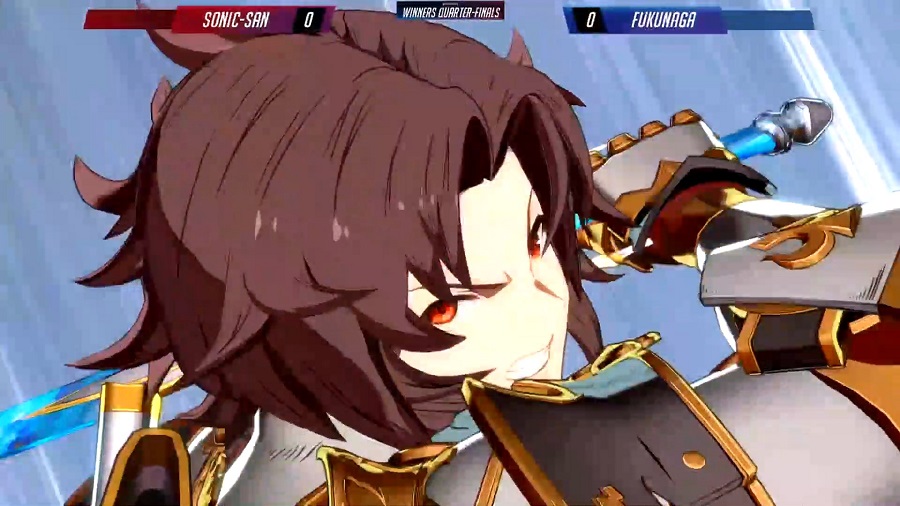
──Is there anything you would like to ask the players from other regions?
Takodot:
Characters tend to be evaluated differently in Japan and overseas. I’m curious about character rankings overseas after the 1.30 patch, especially which characters are considered strong in the current environment.
Kojicoco:
Siegfried.
Xerom:
I think the West prioritizes rush down and a character’s tool set. That’s why characters like Siegfried, Nier and Seox are generally seen as the three best characters in the game, precisely because they can control so much of the screen at any given point in the game. I would say that, because America favors more aggressive play styles, characters that are able to express that are commonly tiered higher.
Fukunaga:
Are there any Japanese players other than those who participated in the ARC WORLD TOUR that you are keeping an eye on?
Fitizen:
As a Percival and Siegfried player, I think Tororo is a very strong player. I think he’s clearly stronger than me, so that’s why I watch his footage to learn things. I think his style is also very similar to what I described earlier with wanting to DP through special cancels and play reactively. Of course, there’s Gamera too. Both of these players encapsulate that slower play style that was really strong in the base game, but a bit weaker now in Rising. However, they are still making it work.
Kojicoco:
The Japanese players I am looking out for are Gamera, Tororo, Hinokinobo, and RQ. I think they are all very strong players.
Fitizen:
I would like to ask Fukunaga how his character ranking has changed after Lancelot was nerfed in the 1.30 patch, and what he thinks of the current Lancelot.
Fukunaga:
Lancelot’s biggest nerf in the 1.30 patch was U-Wogenstrom’s activation becoming slower. Now you can do a sequence of guards only from a close heavy, making it easier to counter using guard cancel. I had the habit of using U-Wogenstrom from a far medium, and it used to be a very strong move, but it doesn’t work against opponents who know how to counter it, so I’m trying not to use it as much anymore.
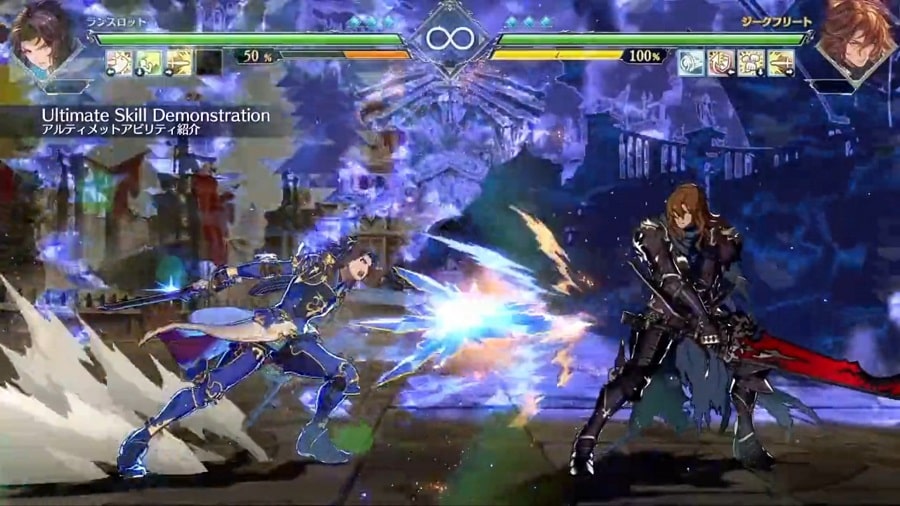
It’s true that U-Wogenstrom’s activation has been slowed down, making it easier to counter with dodging and anti-air moves, but it is also true that those who had practiced countering it were able to do so for some time already, so if we take this patch as an opportunity to rely on that less, it will be easier to fight those who are prepared to counter it. The other thing is the dash attack. There is now more knockback when it gets guarded, but in the case of Lancelot, the distance is extended even if it hits. However, he is a fast character to begin with, so I don’t think it will have much of an impact on him.
Xerom:
I would like to ask the two Japanese players which characters they would like to see added to the game other than Vikala.
Takodot:
Besides Vikala, I like a character called Vania, so I would love to see her included.
Fukunaga:
I would love to use Yodarha, who was a great help to me in the original Granblue Fantasy, in the fighting game as well. He is an old man, but he has a cool secret move!
──What are your expectations for the future of GBVSR?
Takodot:
I hope that we get to do more and more things from now on. If all the adjustments lead to interesting parts of the characters being removed or make things that were previously possible no longer possible, players will grow dissatisfied. I would love to see the game be adjusted and evolve in a way that increases the number of things we can do and expands the range of play. And, of course, I would love for Vikala to get implemented! The graphics in GBVSR are beautiful, and I would be thrilled to be able to play my favorite character. Mr. Fukuhara, please make it happen!
Fukunaga:
In the current GBVSR, there are basically only two ways to break the opponent’s guard: throws and so-called “frame traps” for when your opponent escapes from the throw. Because of that, I think it would be good to strengthen the middle and lower part of the triple attack a bit more. That’s in terms of damage, but, especially when it comes to the middle part, you only have one frame of advantage even if you hit, so I think it would be better to increase that number or even make the opponent go down. Fuzzy guard also has six frames of allowance, and I think it could be shortened a bit more.
Also, I believe GBVSR is interesting to play offensively. The dash attack was nerfed a bit in the 1.30 patch, but I don’t think it should be weakened any further. All of the current characters are unique in their own way. For example, Lancelot has the U-Wogenstrom that I mentioned earlier, and Percival has Anzünden, a ground-crawling fireball. I would like to see adjustments that will continue to develop these unique abilities and parts of the game. In terms of input, I think there is room to add special back moves, so I would be happy if more interesting moves were added in the future.
Xerom:
I will continue playing GBVSR regardless of which direction the game goes, but I do hope that it continues to refine and develop itself to be enjoyable for both players who like anime- style fighting games and players who enjoy the Street Fighter-style fighting games. As for more specific changes, I play my character Charlotta with technical inputs, and when I’m holding down “back,” I can’t do the 66L, or the dash attacks out of down backing. That’s probably the biggest change I would like to see. And for the brave counter system, if a player blocks a brave counter, I don’t think it should still be the opponent’s turn. I think the person who blocked the brave counter should have an advantage, or just be more even, so that the game doesn’t evolve into “brave countering each other’s brave counters.” But aside from that, I do enjoy the direction in which GBVSR has been going compared to the first game.
Zippy:
My only wish for GBVSR would be the addition of an MR system similar to Street Fighter 6, whereby after you hit master, you start getting points which are used to match you up with people with similar points or ratings. With the current Master system, you’re fighting the same people over and over and it gets a bit frustrating. I would like the matchmaking to open up a bit more.
Kojicoco:
For universal changes, I do agree that brave counter needs to be nerfed a little bit more. They did make it so that you don’t take damage from brave counter past a certain health threshold, but I still think it’s strong. I also know that a lot of people don’t like the fact that brave counter is plus on block. I do understand that it’s an expensive resource and I think it should be plus, but I also think it should have pushback, so players won’t just be brave countering the brave counter – that’s not really fun to watch. Also, nerf Siegfried’s DP! It’s invincible for too long and goes through projectiles way too easily, I don’t think it was designed to be like that. Also, I think the new patch really helps characters with low 66Ms. I think that even before, characters would benefit from the low 66Ms more than the characters with overheads, so I feel that if they decreased the distance for some of the 66Ms, it would make a lot of sense. Also, it would be cool if they buffed Zooey…not that they have to.
Fitizen:
First, I want to offer praise to Arc System Work and Cygames. I think the world tour format is incredible and I’m really happy about so many offline tournaments being prioritized even though the trend has been gradually going towards favoring online. For this tour, offline is clearly the focus with online being supplementary, which I think is great since online tournaments should also exist and should matter too. Thank you for that. As for gameplay, I completely agree with brave counter being too strong. One of the reasons why comebacks are so common right now is that a lot of the strongest characters very consistently get their animation on their supers. It’s very common to have this pattern where Siegfried, for example, is cornered – you’re winning, and he hits his SSBA which drains 2 crystals and does a lot of damage, side switches, and also gets a meaty fireball with chip damage. I think that is too much. It’s not just Siegfried, Nier also very reliably gets that drain on the crystals. I understand why it is designed this way, but I would personally like it more if the SSBAs didn’t drain 2 crystals. I just think it’s too much. That, combined with a BC nerf would be my main hope, but in general, I’ll take anything that slows the game’s pace, like reducing damage, since I personally prefer slower games.
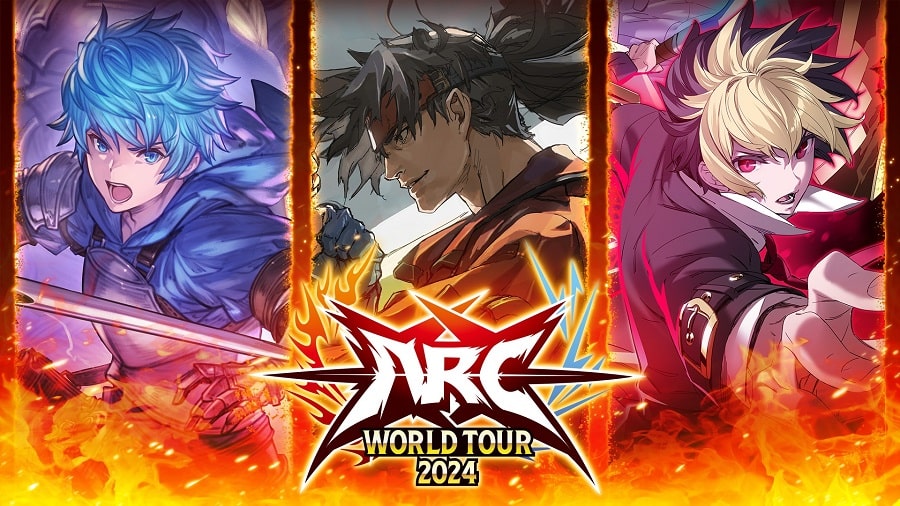
──Finally, do you have any message for your fans and supporters?
Takodot:
I am very grateful for the support I have received from various people on social media – it has definitely been a source of strength for me. I intend to continue to participate in tournaments and play GBVSR, so I hope you will continue to support me!
Fukunaga:
I am very grateful that there are people in the communities of the games I’ve played before that still support me and celebrate my victories. I am not sure which games I will be playing in the future, but I believe that the most important thing in games is to enjoy them, so I hope to do that together with you all.
Xerom:
I would like to thank all supporters thus far who have become fans. I’m not used to actually having fans or people who enjoy my gameplay, so I just want to thank them for that. Even though it’s a little embarrassing. I hope that they’ll continue to support me in any upcoming future GBVSR events. Also, I hope Cygames will continue to include more Harvin characters in the game so we can play more Harvins in the game as well.
Kojicoco:
I’m actually surprised by the amount of support I was given, especially by my family. One of the people I respect the most is my grandfather, and he really helped me through this financially. My mom was rooting for me all the way too. It’s such a weird feeling to have people know who you are, and I feel super blessed. I’m grateful to have all this recognition and be able to play at this level, so I’ll keep trying to be the best.
Fitizen:
I’m grateful for all the support. Coming home, I was unhappy with my performance overall, so the first thing I would like to say is that I’ll try to come back stronger. Seeing the support from the European community, how they watched the tournament and cheered for me felt very nice. I’m really grateful for this experience, and I’ll try my best to qualify next year again and aim for a better outcome.
Sonic-san:
I would like to offer my thanks to the European community first, they are very kind and very nice. Also, I would like to thank all my French friends who supported me through this. By the way, there’s a lot of tournaments in Europe, so if someone’s looking for a player to sponsor – me and Fitizen play Siegfried, I think we’re a good investment!
Zippy:
All I could really say is shout-out to the Guilty Gear community for helping me through all this, because as someone who is new to GBVS and didn’t know anything about the series, the Guilty Gear scene helped me a lot. There’s been a lot of times where I wanted to quit, but the community helped me through those times, told me to push through it and just keep playing. They are mainly the reason why I made it here, so big shout-out to them.
──Thank you for today’s interview!

